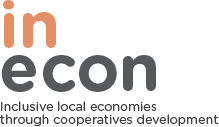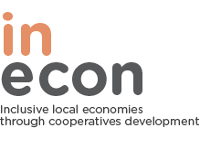„Thanks to Samuel Jurkovic, who founded the first financial cooperative on the European continent, Slovakia has one of the longest and most extraordinary cooperative traditions. However, during the 20th century, the democratic cooperative tradition was interrupted and even after changes that took place after 1989 Slovakia has not reclaimed it. In the general public perception the term cooperative is often connected to agricultural cooperatives of the former regime and violent collectivization which accompanied their establishment. But cooperatives are not only agricultural businesses and the most important principles of the cooperative movement suppressed by the 20th century authoritarian regimes include voluntary membership in the cooperative and democratic decision-making in the workplace. The International Cooperative Alliance defines cooperative as an autonomous association of persons united voluntarily to meet their common economic, social, and cultural needs and aspirations through a jointly-owned and democratically-controlled enterprise. The conference aims to contribute to the renewal of this democratic cooperative tradition and to the revival of the cooperative movement", says Peter Vittek from Utopia, the leading partner of the project.
„Although in the Visegrad countries cooperatives in the past played a significant role in socio-economic development especially at the local or sub-regional level, at present they are on the margins of interest despite the fact that they could encourage economic activities in the territories and economic sectors which are not within the scope of interest of strong economic actors. In the times of the economic crisis, cooperatives and other forms of social and solidarity economy may provide a model that secures sustainable employment and ensure more equitable future for those communities in which they operate or to whom they serve. This agenda has recently been emphasized also by the UN as a response to rising inequalities as well as environmental degradation and we wish to bring it more to the public attention in our respective countries," added one of the conference organizers Eva Riečanská, an anthropologist and coordinator of the research part of the project in Slovakia.
The conference is funded by the International Visegrad Fund in conjunction with the project "Cooperative business and innovative rural development: Synergies between commercial and academic partners" (C-BIRD), European Alternatives and International Young Professionals Foundation.
For further information on the conference, conference venue and program visit webpage:
http://utopia.sk/liferay/web/inecon/konferencia
In case you have any other question, write to address utopia@utopia.sk.

![čeština [Beta] čeština [Beta]](http://utopia.sk/inecon-theme/images/spacer.png)


